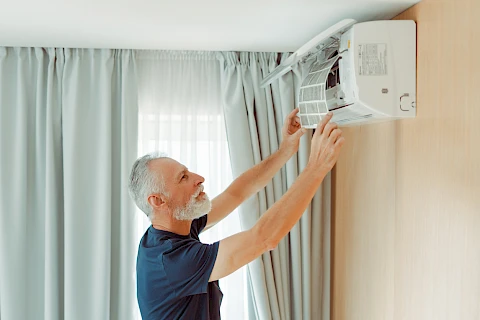
Living in a clean and healthy environment is vital for everyone, but it's especially crucial for seniors. As we get older, our bodies become more susceptible to health complications, and a major contributor to some of these problems can be allergens in the home. Allergens are substances that cause allergic reactions, and many of them can be found right under our noses—or rather, right in our houses. These can include dust mites, mold spores, pet dander, and more. For seniors who want to ensure their homes are as allergy-free as possible, we've put together this guide. Learn about the nature of indoor allergens and the impact they can have on your well-being. Discover practical tips to minimize their presence in your home so you can create a healthier living environment.
What Are Allergens?
Before you discover how to eliminate allergens, it's essential to understand what they are and how they affect health. Common indoor allergens include dust mites, pet dander, mold spores, and pollen. These allergens can cause a variety of symptoms ranging from itchy eyes, runny nose, and sneezing to more severe reactions like breathing difficulties or even asthma attacks. Seniors, because of their generally lowered immunity, are often more affected and can experience discomfort or adverse health effects.
Tips to Reduce Indoor Allergens
To keep your home allergen-free, consider the following:
Change Air Filters
Air filters in your heating, ventilation, and air conditioning (HVAC) system play a crucial role in maintaining good indoor air quality. These filters trap dust, pollen, and other airborne allergens, preventing them from circulating throughout your home. Changing these filters regularly is crucial. Experts recommend replacing them every 60 to 90 days, but if you have pets or are particularly sensitive to allergens, consider changing them monthly.
Dust Frequently
Regular dusting can significantly reduce the amount of dust and other allergens in your home. Focus on areas such as bookshelves, blinds, and electronics, which tend to accumulate dust quickly. Try to use a microfiber cloth or a damp rag to capture the dust instead of spreading it around.
Check Screens for Tears or Rips
Window and door screens allow fresh air to circulate while keeping out larger allergens like pollen. Check your screens regularly for any tears or rips that may allow allergens to enter your home and repair or replace them as necessary.
Vacuum Regularly
Vacuuming at least once per week can help remove allergens from your floors, particularly carpets, which can trap and hold allergens. Choose a vacuum cleaner with a high-efficiency particulate air (HEPA) filter for the best results.
Wash Bedding Regularly
Bedding can collect a significant amount of dust mites and dead skin cells over time. Washing your sheets, pillowcases, and blankets once per week in hot water can help keep these allergens at bay.
Keep Humidity Levels Low
Allergens like dust mites and mold thrive in high humidity. Aim to keep your home's humidity levels below 50% to deter these allergens. You might consider using a dehumidifier or air conditioner to help control humidity.
Professional Help for Allergen Control
Despite your best efforts, sometimes professional help may be needed, especially if you or a household occupant suffers from severe allergies. The team at Senior Helpers Riverside is trained to provide a clean and healthy living environment for seniors, with a special focus on allergen reduction.
Get Allergy Assistance From Senior Helpers Riverside
Living with allergens does not have to be a constant battle. With understanding and proactive measures, you can significantly reduce the allergens in your home, improving not only your comfort but also your health. If you need assistance managing allergens in your home, especially a senior living in Riverside, Hemet, Moreno Valley, or San Jacinto, please contact us at Senior Helpers Riverside. Our team is ready to help you breathe easy and live healthily.